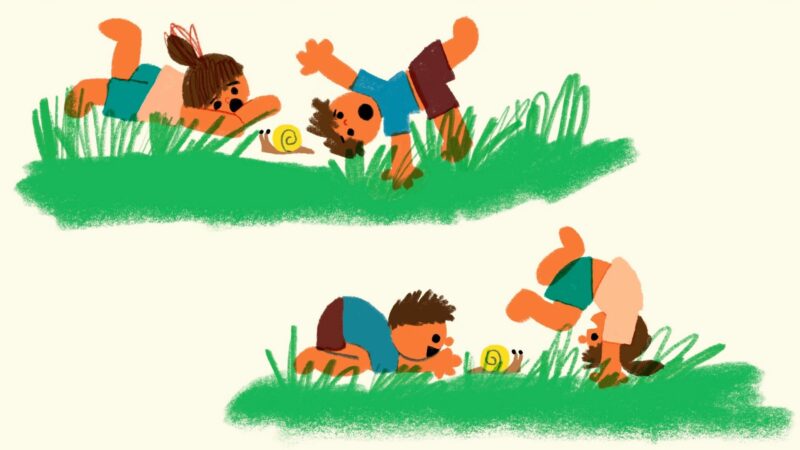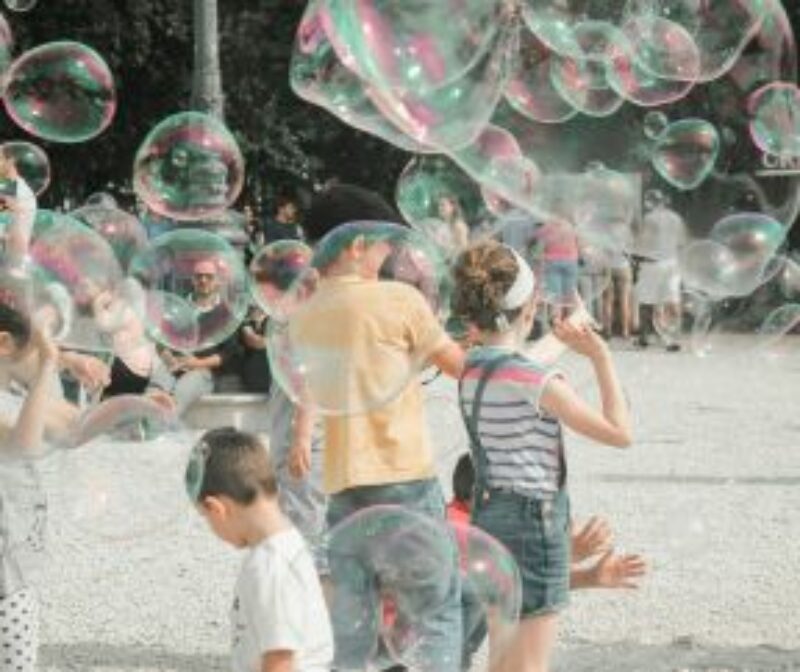It is a happy talent to know how to play – Ralph Waldo Emerson
When was the last time you played? One of the best things about being a parent is being invited back into a sense of play. Let me give you an example of what I mean. When we were all sheltering at home in 2020, my youngest son made up a game where he stood in the backyard with a tennis ball in his lacrosse stick, threw the tennis ball high in the air and over our house, then running as fast as he could, he tried to catch it on the other side. There were many, many attempts to catch the ball. He would sprint through the house with his lacrosse stick in hand, not quite getting to the front yard in time to catch the ball. His enthusiasm for this game got us all involved. We had to move most of our den furniture and all of the rugs out of the way to clear a path for him, and I started filming his attempts on my phone. It was hilarious. When he finally caught the ball in the front yard, we lost our minds with delight – hooting, dancing and giving him high-fives. It was incredible fun, and we got completely caught up in it.
During what was a challenging time for most families, our son invited us to play and it made a difference. We had a common goal, felt connected, and we experienced joy. The purpose of the game was never going to change the world, but it did help our son feel more confident and it diffused some of our stress. Play is expansive and while we don’t necessarily think of play as being spiritual, it actually builds capacities necessary for wholeness and spiritual health.
Adult life, especially during times of stress, can be so serious, but even if you don’t have an active kid at home, we encourage you to play.
Why is play so important for humans? It’s something that occurs spontaneously in animals, and it is a way children learn and test themselves. Play is vital to the relational development of children because they learn to regulate their emotions and understand the perspectives of others during play. Humans are innately social creatures, so we often invite others into our games. According to De Koven (2017) “so much of what we call fun, happiness, joy comes to us when we let ourselves connect to something larger: family, community, planet.” Play can open us to a sense of connection that is big and juicy – transcendent. If you ever went to church camp, you might remember how playing games, singing, and making s’mores by an open fire created really good feelings that helped you experience something larger than yourself – perhaps a deep sense of connection to God, others, or the needs of the world. The positive emotions invited by a sense of play are not only protective, but help us develop a sense who we are and to whom we belong. “Maslow [1970], who is synonymous with the concept of self-actualisation through the fulfilment of basic needs, listed playfulness as a ‘being value’, necessary for reflecting on the way the world appears and allowing us to freely express our authentic selves” (Tonkin & Whitaker, 2021).
While youth groups typically include play as part of their gatherings, many adult focused religious and spiritual gatherings do not include playful activities. Adults tend to stop playing for a variety of reasons – priorities shift and schedules become rigid, and culturally play is often seen as childish. Adults sometimes believe they have too many responsibilities to make time for play. When you attend a church service, play may not feel like a natural way to explore deep issues around meaning or how to live your life. Another impediment to play occurs because many adults have experienced trauma and struggle with feeling open enough to play. “Play only occurs when one is safe, secure and feeling good…” (Panksepp & Biven, 2012). However, the positive emotions associated with play can help adults feel connected to something beyond themselves. Adults probably need to give themselves permission to put playtime into their schedules, and they might need a little practice. If you find it impossible to play, it might indicate something is inhibiting a sense of safety (if you find that you need help, here is a resource).
While we aren’t suggesting play should dominate an adult’s life, play should be part of your regular rhythms “that strengthen the ability to flexibly transition between activity and calm” (Porges, 2015). Regular rhythms of work, rest, worship, and play sustain a thriving life. We need the emotions that play can elicit such as awe, hope, and joy, and play encourages the use of our imaginations, so important for creativity and feeling connected to God and others. Play helps us to become mentally flexible , and that flexibility supports our resilience to challenges, plus it helps us understand others who think differently than we do. All these qualities support healthy spirituality.
So if I’ve convinced you to find a little time for play, go for it! If you are stuck, here are some ideas to get you started.
Want to get a little more play in your life?
- Try a spontaneous Saturday – either drive or take a train ride without any definite plans. Just go somewhere (maybe pack a bag just in case!) Explore. You can do this with a friend or by yourself. Take photos or draw in a sketchbook. Be open to conversations and opportunities. Let yourself feel a little uncomfortable. Keep in mind that you are exercising a “muscle” that might be out of shape, but remind yourself that spontaneity is good for you.
- Another idea is to play a game that I loved in my childhood – ask yourself or someone else the question, “Can you imagine if (fill in this space)” You can play this game any time, with yourself or with anyone who is game. Taking inspiration from the famous John Lennon song, imagine a world where there is no war, or where people live for today? Dream away and let the ideas fly. It’s really fun to play this game with a young person. There are endless possibilities.
- Take up a sport or take an art or dance class – not for the sake of getting good at something – but just for the fun of it. The goal is to simply enjoy the activity, let off some steam, and maybe connect. Work on having minimal ego involved. The newer the activity is to you, the better. Try something you’ve never tried before or never thought you would be good at – and have a sense of humor about it. If you fall, get up. If you miss a shot, laugh.
- Host a game night. Invite people over to play charades or one of the newer role-playing games, like Catan.
- Tell stories – either from your experience or make them up. You might want to ask an older person to tell you about a life changing experience, or you might want to share a life changing experience of your own.
- For fun try a backward day to upset your routine by eating dinner at breakfast or dessert before dinner.
- When was the last time you didn’t have any plans on a Sunday afternoon? Rather than fill your day (of rest) with cooking, errands, and social gatherings, consider a day where you leave space for unstructured time. You might want to explore a playlist or listen to random music. Maybe you spend time pursuing something creative – like writing or painting.
- Explore something you liked to play when you were young. I always enjoyed the feeling of being upside down, so I’m still trying to stand on my head and I regularly practice handstands. But, if you really want a workout, grab a soccer ball and kick it around at a park. Someone probably will join you.
If you are having trouble with adding spontaneous play in your life, find a kid and ask them to play. They’ll probably have lots of ideas!
References
Tonkin and Whitaker, “Play and playfulness for health and wellbeing: A panacea for mitigating the impact of coronavirus (COVID 19)” (2021)
De Koven B. Feeling connected. 2017. https://www.deepfun.com/feeling-connected/
Porges (2015) Play as a neural exercise: Insights from the polyvagal theory in The power of play for mind brain health.
Panksepp & Biven, The archeology of mind: Neuroevolutionary origins of human emotions. (2012)
Maslow A. Viking; New York: 1970. Religions, values, and peak-experiences. [Google Scholar]
Continue Exploring

Practices
It’s Okay to Let Your Child be Bored This Summer
Written during the Summer of 2020, this post maintains wisdom for parents about the importance of unstructured time and play.

Joy
Joy Competencies (Part 1): How to Make Joy Our Lifeline During Hard Times
Want more joy even during the tough times?

Joy
Dad Jokes: Science Agrees we Need More Laughter
Research shows that humor can ease stress during hard times. Dr. Susan Mangan shares 3 evidence-based practices to help us get started.

